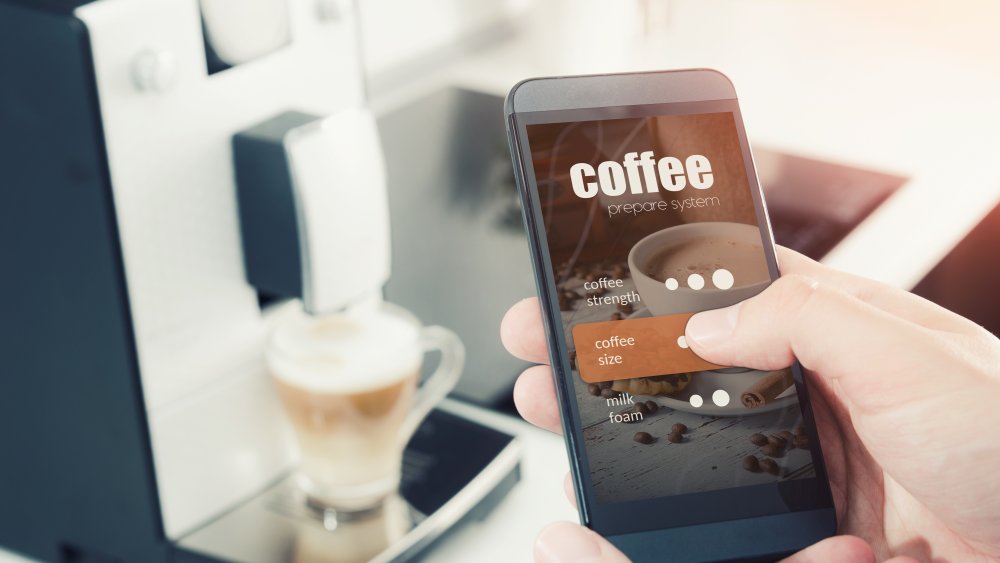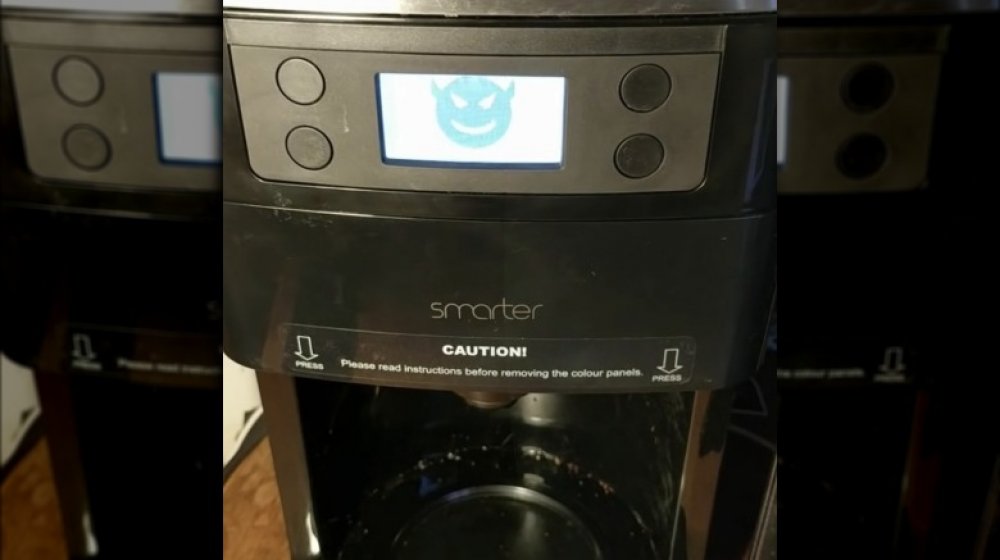Can Digital Coffee Machines Really Get Computer Viruses?
Have you seen the 2019 reboot of Child's Play, the movie about the murderous doll named Chucky? The franchise's concept has been updated for the 21st century. Now, Chucky is built with artificial intelligence and comes with a smartphone app, and he is able to recruit everything from the thermostat to a lawnmower to aid him in his rampage (via Futurism). You can tell yourself it's just a movie, but the underlying premise is very real. To prove it, a friendly hacker – one that publishes his successes rather than profiting from them – programmed his smart coffee maker to display a face with devil's horns on its small gray screen. You can see the "possessed" machine on a YouTube video posted by the hacker, Martin Hron, whose actual job title is security researcher (via Ars Technica).
Hron went further than making a funny face. He was able to program the coffee machine, made by a UK company called Smarter, to demand a ransom: If you ever want to brew a pot of coffee again, then you need to send an untraceable cryptocurrency payment through a web link. For dramatic effect, as the screen displayed the link, Hron had the coffee maker turn on its bean grinder while spilling water all over the hot plate, which was also turned on. The only way to stop the virus, other than paying the ransom, would be to pull the plug.
Protect your smart devices from hackers
Hron took advantage of a couple of security weaknesses in his coffee maker. For one thing, the device provided hackers with a way into the house's wi-fi. Second, the phone sent updates to the coffee maker's software without any security measures that would ensure the update was authorized and friendly. Long story short, after a week of tinkering, Hron was able to make his coffee maker do whatever he wanted. It's enough to put the evil gleam in Chucky's eyes.
The good news for owners of the Smarter coffee machine is that it has gotten, well, smarter since Hron bought his back in 2016. The second generation of Smarter coffee makers, sold since 2017, has better security built in (via Forbes). The problem with the old coffee maker was that Smarter stopped providing software updates that could have improved its security.
Smarter might have plugged some virtual leaks in its coffee maker with the new version, but the so-called "internet of things" remains vulnerable to hacks (via ZDNet). Home devices can be hijacked. Smart buildings can be broken into. Hackers can even mess with the cameras on smart cars. To protect your smart devices from cyberattacks, make sure to give them all unique passwords and find out how long the manufacturer will continue to provide updates for them (via ZDNet).

